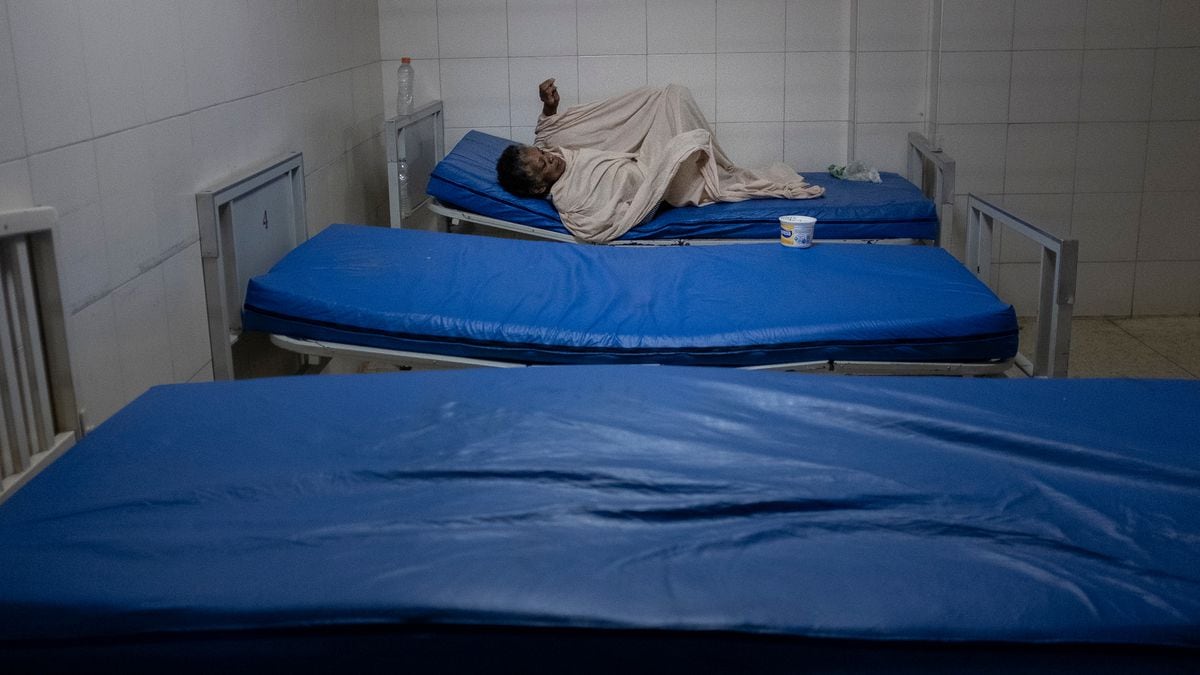Children with behavioral disorders: According to the RKI, more than a fifth have mental problems
Created: 07/03/2022Updated: 07/03/2022 17:16
By: Natalie Hull Drawbar
"That's not normal!" A saying that parents like to say about their children's behavior.
But what behavior is normal?
Munich – "When I used to see parents with their loud, cheeky and overexcited children, I always thought to myself, 'My children will never be like this.'
Then I was quickly taught otherwise when I became a mother myself and my son started to show erratic behavior from around the age of three, quickly becoming angry, yelling and yelling.
To this day, at almost six years old, he still does. My husband and I are very unsettled because we ask ourselves whether it is normal for our child to behave like this or whether it is even mentally ill.
Precisely because we often see other children who don't do that.” An honest statement from a mother with whom we spoke from 24vita.de.
Conspicuous, disruptive, "abnormal" behavior in children is one of the most sensitive issues for parents, and one that many are reluctant to discuss.
Especially when they feel like it's just their own child that's coming off as "misbehaving."
Children with behavioral problems: what are the typical signs?
According to the Robert Koch Institute, boys show behavioral problems more often.
(Iconic image) © Westend61/Imago
If their own child shows behavioral problems, the parents are often afraid that they do not have their child under control, that they may be overprotecting it or that, as helicopter parents, they are raising it incorrectly.
How can parents recognize that their child is "mentally disturbed"?
Are there early warning signs that could possibly even indicate an illness?
When it comes to the signs of children with behavioral problems, experts distinguish between internally and externally directed symptoms, according to “Die Oberberg Fachkliniken”:
Conduct disorder in children: outward-facing symptoms
Sometimes severe irritability
tantrums
impulsiveness
hyperactivity
denial of service
Crying a lot and loudly for no apparent reason
also read
Health speculation: This is how Putin has changed in three decades
How old will I be?
Five blood markers show how your life expectancy really is
You can find even more exciting health topics in our free newsletter, which you can subscribe to right here.
Behavioral disorder in children: inward-looking symptoms
fears
depression (persistent sadness or worry)
overcaution
uncertainty
difficulty concentrating
Insomnia with nightmares
Regressions in development with, for example, bedwetting
Physical complaints such as abdominal pain with no apparent physical cause
Withdrawal of friends from other children and from the social environment
Behaviorally Disturbed Children: How Many Are Affected?
According to a study by the Robert Koch Institute (RKI), more than a fifth of all children and adolescents between the ages of seven and 13 belong to the risk group for mental health problems.
Boys are affected more often than girls.
In addition, boys between the ages of seven and 13 were more likely to develop mental health problems than those between the ages of three and six and 14 to 17.
What was found: For both girls and boys, a connection could be established between the social status of their family of origin and the occurrence of the signs of their behavioral disorder.
The lower the social status, the more frequently behavioral problems could develop.
Behavioral disorders in children: which clinical picture could be behind this?
Very many children show behavioral problems - even if it may seem different to many parents subjectively in acute situations - and fundamentally this is not wrong or abnormal.
As long as children and young people are growing up and developing (also mentally), changes in their environment and everyday family life will befall them, so that these influences are understandably more or less expressed through their behavior, their mood, their emotional life.
If the conspicuously disturbed behavior becomes a major burden for the child, the environment and the parents, this should be discussed with the pediatrician in order to develop possible strategies for conflict resolution and - if useful - on the basis of examinations of certain diseases in children such as ADHD or depression rule out.
Children of parents or adults with ADHD or depression have a higher risk of developing a mental illness themselves.
Genetic factors should not be neglected for a necessary diagnosis of behavioral disorders in children and adolescents.
Children with behavioral problems: What do experts and educators say?
However, many experts, paediatricians and educators agree: A child's behavioral problems should not be immediately pathologized.
In today's society, which is often about adaptation, not attracting attention and perfection, the image would like to be conveyed: "Anyone who attracts attention is not normal".
It would be so important for children to develop freely without being constantly stuck in a social grid, experts advise.
Pedagogue, author and former TV "supernanny" Katia Saalfrank advocates not automatically classifying children who attract attention as having behavioral problems or disorders.
In social media, she takes a clear position on the subject of "children with behavioral problems":
“More and more children with behavioral problems? [...] Today we know a lot more about children, their development and what children need in order to be able to grow up as mentally and physically as possible. In my work with educators and teachers, I often encounter that age-appropriate and developmentally appropriate behavior is interpreted by experts as pathologically conspicuous behavior. A good seventy years ago, feelings hardly played a role in upbringing. They were usually suppressed. Today we know that people are inhibited in their emotional development as a result and can develop disorders as a result. [...] The parents are often informed immediately, the child is separated and stigmatized as an 'aggressive' and 'child with behavioral problems'. [...] out of the absurd fear that
How did parents deal with children with behavioral problems in the past?
In families of earlier generations, the authoritarian style of upbringing was generally lived out, so it was "completely normal" to punish children with a slap in the face.
Many parents today are distancing themselves from these methods and relying more on relationship rather than purely punitive parenting.
This article only contains general information on the respective health topic and is therefore not intended for self-diagnosis, treatment or medication. In no way does it replace a visit to the doctor. Unfortunately, our editors are not allowed to answer individual questions about clinical pictures.











/cloudfront-eu-central-1.images.arcpublishing.com/prisa/S7ERVSCT4FUVX6R7TUVBDNTH5Y.jpg)


